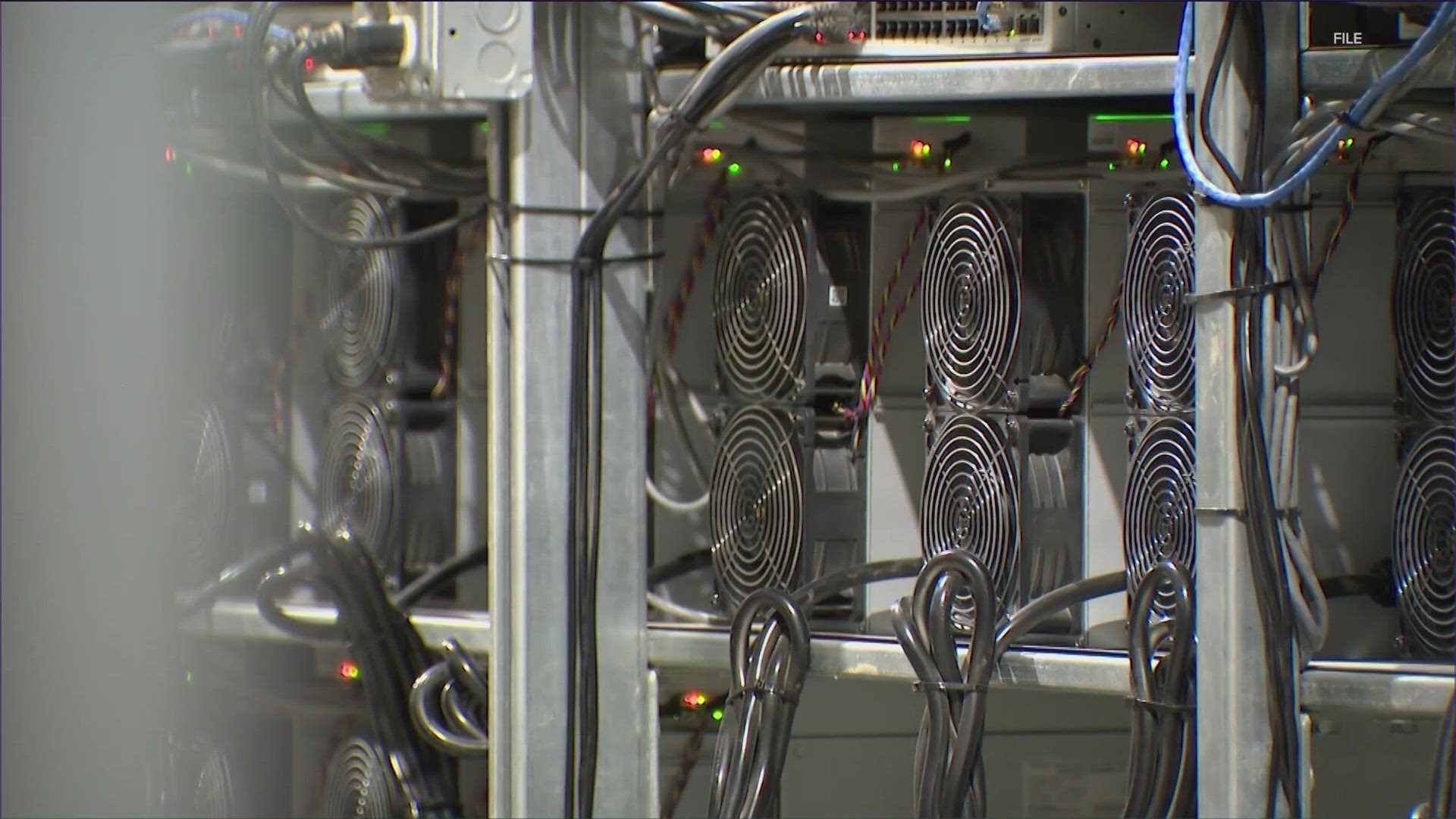AUSTIN, Texas — One of the strategies the Electric Reliability Council of Texas (ERCOT), the state's power grid operator, deploys to help lower electricity use during peak demand periods faced criticism on Thursday.
Luke Metzger, the executive director of Environment Texas, believes it's infuriating that ERCOT offers energy credits for certain mining companies to stop operations.
"I was outraged," Metzger said.
Metzger's reaction comes after one of those mining companies, Rockdale-based Riot Platforms, announced on Wednesday that it made $31.7 million from the practice.
"This is absurd that we're paying this company $31 million to stop using electricity when you know... the rest of us all are not getting compensated for reducing their electricity use," Metzger said.
That $31 million is nearly four times the amount Riot Platforms made selling Bitcoin.
According to the company's presentation filed with the Securities and Exchange Commission on Wednesday, Riot's Rockdale facility is the largest Bitcoin mining data center in North America with 700 MW (megawatts) of total capacity.
The presentation also showed how Riot's operations are concentrated in Texas as the Lone Star State is considered the most attractive jurisdiction for Bitcoin mining. Riot credited Texas' business-friendly environment.
The presentation revealed Riot's power strategy through three mechanisms, manual curtailment, ERCOT ancillary services and ERCOT's 4 Coincident Peak Program.
Under manual curtailment, Riot powers down operations and returns power back to the utility when market prices are higher than Bitcoin mining revenues. Riot receives power credits for the difference between the market power price and Riot's power price. In August, Riot received $24.2 million in power credits.
Under mechanism two, ERCOT ancillary services, Riot bids to sell ERCOT the option to control Riot's electrical load in certain hours. In return, ERCOT pays Demand Response Credits, which are received whether or not ERCOT calls to power down. In August, ERCOT gave Riot $7.4 million in Demand Response Credits.
ERCOT's 4 Coincident Peak Program allows Riot to voluntarily power down operations during peak demand periods in the summer. This offers Riot substantial savings on transmission costs in future power bills and reduces overall power costs.
The report also gave production and operations updates.
Riot produced 333 Bitcoins in August 2023, sold 300 of them and made $8.6 million in net proceeds. Compare that to July 2023 where Riot produced 410 Bitcoins, sold 400 of them and made $12.1 million in net proceeds.
In a press release, Riot Platforms' CEO Jason Les said, “August was a landmark month for Riot in showcasing the benefits of our unique power strategy... Riot achieved a new monthly record for Power and Demand Response Credits, totaling $31.7 million in August, which surpassed the total amount of all Credits received in 2022."
According to ERCOT, mining companies like Riot Platforms use nearly 4% of the forecasted peak loads.
Metzger said ERCOT should pay residential customers instead.
"We think a better use would be a program that compensates residential customers, that pays people to turn up their thermostat a few degrees or to avoid using appliances during peak demand. You know, those kinds of programs could save more than 4,000 megawatts of electricity," Metzger said. "So it would be a big boon for our grid reliability. But then, also, it would just really reward people for the sacrifice they make and helping keep the grid afloat."
Metzger pointed out that Senate Bill 1751 would have capped the mining industry's participation in cost-saving demand response programs, but it died in committee. Here's a copy of that bill.
Metzger is also concerned that the mining industry's increasing use of electricity will put a continued strain on the power grid.
"We've been particularly concerned about the rise of Bitcoin because it is just increasing strain on our electric grid. You know, about two gigawatts of electricity used in Texas this year [is] for producing this cryptocurrency. Another four gigawatts on the way. You know, looking down the next few years, it could be another total of 33 gigawatts," Metzger said.
KVUE reached out to the Texas Blockchain Council, but we have yet to hear back.

